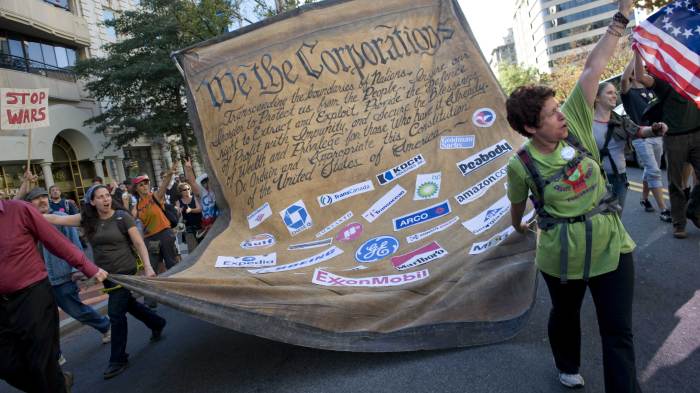We the People Essentials 14th Edition embarks on an enlightening journey into the profound significance of the phrase “We the People,” which lies at the very heart of the United States Constitution. This phrase embodies the fundamental principles of popular sovereignty and civic responsibility, shaping the nation’s political and social landscape throughout history.
As we delve into the historical context and constitutional principles enshrined within “We the People,” we uncover its multifaceted interpretations and evolving meaning in response to societal transformations. This exploration provides a deeper understanding of the phrase’s contemporary applications and relevance to current affairs, empowering citizens to grasp their role in shaping the destiny of their nation.
Historical Significance
The phrase “We the People” is the opening clause of the preamble to the United States Constitution. It was first used in the Articles of Confederation, which were the first governing document of the United States. The phrase was added to the Constitution at the Constitutional Convention in 1787. It was intended to emphasize the fact that the Constitution was being created by the people of the United States, not by the government.
The phrase “We the People” has been interpreted in many different ways over the years. Some people believe that it means that the government is created by the people and is therefore responsible to the people. Others believe that it means that the people are the ultimate source of power in the United States.
Constitutional Principles
The phrase “We the People” is based on the principle of popular sovereignty. This principle states that the government is created by the people and is therefore responsible to the people. The people are the ultimate source of power in a democracy.
The phrase “We the People” also implies that the people have certain rights and responsibilities. These rights include the right to vote, the right to free speech, and the right to due process of law. These responsibilities include the responsibility to obey the law, to pay taxes, and to serve on juries.
Interpretation and Evolution
The phrase “We the People” has been interpreted in many different ways over the years. In the early days of the United States, the phrase was often used to justify the expansion of the federal government. In the 20th century, the phrase was used to justify the expansion of civil rights.
The meaning of the phrase “We the People” has evolved over time in response to societal changes. In the 21st century, the phrase is often used to emphasize the importance of civic responsibility. It is also used to promote the idea that the United States is a nation of immigrants.
Contemporary Applications

The phrase “We the People” is used in many different ways in modern society. It is often used in political speeches and debates. It is also used in textbooks, newspapers, and magazines. The phrase is also used in art, literature, and music.
The phrase “We the People” is a reminder that the United States is a democracy. It is also a reminder that the people have certain rights and responsibilities. The phrase is a powerful symbol of the American people and their values.
Civic Responsibility: We The People Essentials 14th Edition
The phrase “We the People” has important implications for citizens. It means that citizens have a responsibility to participate in the democratic process. This includes voting, running for office, and serving on juries. Citizens also have a responsibility to obey the law, to pay taxes, and to serve in the military if called upon.
The phrase “We the People” is a reminder that citizens are not just passive observers of the political process. They are active participants who have a responsibility to shape the future of their country.
Global Perspectives
The concept of “We the People” is not unique to the United States. It is a concept that is found in many different cultures and political systems. In some countries, the phrase “We the People” is used to emphasize the importance of national unity.
In other countries, the phrase is used to emphasize the importance of individual rights.
The phrase “We the People” is a powerful symbol of the human spirit. It is a reminder that all people are equal and that they have the right to participate in the governance of their country.
Artistic and Cultural Expressions

The phrase “We the People” has been represented in many different ways in art, literature, and music. In art, the phrase is often used to create images of unity and patriotism. In literature, the phrase is often used to explore the themes of democracy and equality.
In music, the phrase is often used to create songs of hope and inspiration.
The phrase “We the People” is a powerful symbol of the American people and their values. It is a phrase that has been used to inspire generations of Americans to fight for their rights and to build a better future for their country.
Expert Answers
What is the significance of the phrase “We the People”?
The phrase “We the People” establishes the principle of popular sovereignty, recognizing the ultimate authority of the people in shaping their government and defining their collective destiny.
How has the interpretation of “We the People” evolved over time?
The interpretation of “We the People” has shifted in response to societal changes, reflecting evolving understandings of democracy, equality, and individual rights.
What are some contemporary applications of the phrase “We the People”?
The phrase “We the People” is invoked in various contexts, including political debates, civic discourse, and legal proceedings, emphasizing the importance of citizen participation and collective decision-making.
What are the implications of the phrase “We the People” for citizens?
The phrase “We the People” carries implications for citizens, emphasizing their responsibility to engage in civic life, participate in government, and uphold the principles of democracy.